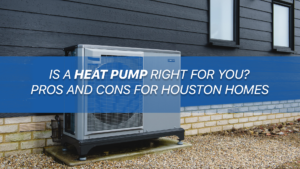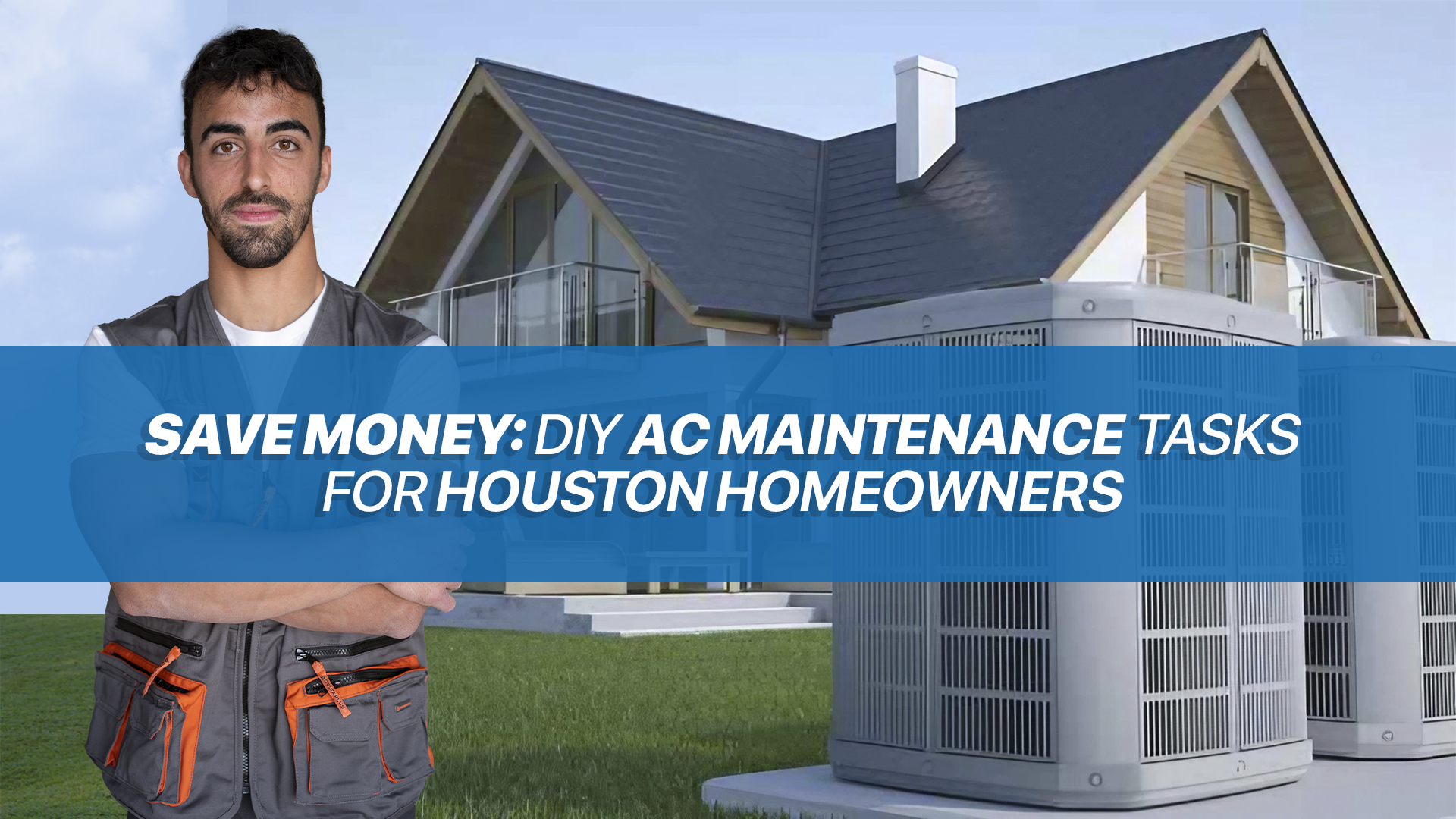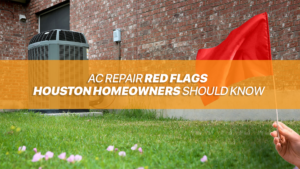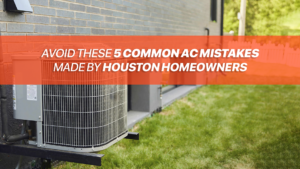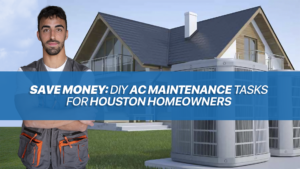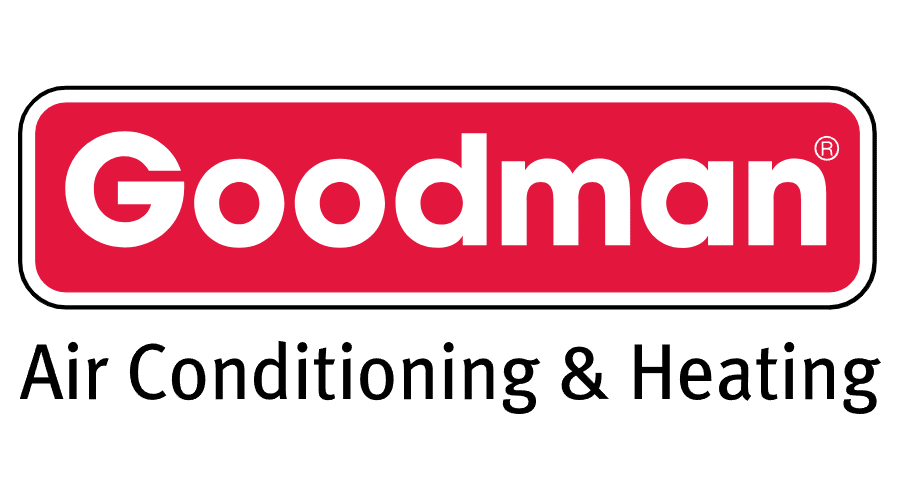As a Houston homeowner, your AC unit likely works overtime during the sweltering summer months. With average highs in the 90s from June through September, it’s no wonder that AC breakdowns spike when you need cooling relief the most. While calling a professional AC company in Houston is sometimes unavoidable, there are ways you can extend the life of your system and avoid minor repairs through regular DIY maintenance. Learning some simple AC maintenance tasks allows you to save money, keep your home comfortable, and prevent unexpected breakdowns. This guide covers basic maintenance tips tailored for Houston’s climate along with easy repairs even novice DIYers can tackle. Follow this seasonal checklist to keep your AC running efficiently all summer long.
Why DIY AC Maintenance Matters
With Houston’s hot and humid climate, preventative AC maintenance is crucial to avoid breakdowns and expensive repairs. Your cooling system works hard during summer and needs regular upkeep to operate at peak performance.
Without proper maintenance, your AC system can succumb to issues like:
- Dirty air filters leading to reduced air flow
- Refrigerant leaks causing reduced cooling capacity
- Drainage problems resulting in water damage
- Worn out fan belts causing the system to stop cooling
- Accumulated dirt, leaves, and debris blocking air flow
These minor issues can lead to system failure, mold and mildew buildup, high energy bills, and costly repairs if left unaddressed. But with simple seasonal maintenance, you can identify small problems before they spiral into big headaches. While some complex repairs require a professional, many basic maintenance tasks are simple enough for DIY novices. And convenient DIY repairs mean avoiding service call fees and weekend/after-hours rates.
Houston Home AC Maintenance Schedule
To keep your system running efficiently, plan to perform key maintenance tasks before the cooling season starts, monthly during summer, and again before winter. Follow this seasonal checklist for optimal performance:
Spring AC Tune-Up
- Clean condenser coils Use a hose or coil cleaner to remove debris buildup from coils.
- Clear condenser unit Remove leaves, plants, and other debris obstructing air flow.
- Change air filters Replace disposable filters or clean permanent filters.
- Check ducts for leaks Use mastic sealant to patch loose connections.
- Lubricate moving parts Oil motor bearings and blower components.
- Check refrigerant levels Contact a pro if refrigerant is low to prevent leaks.
- Verify drainage Ensure condensate drain pan and drain line are clear.
- Check fan belts Replace cracked or worn belts to maintain efficiency.
- Test starting components Replace capacitors and contactors if AC doesnt turn on properly.
- Clean and cover unit Wipe down exterior and apply weatherproof cover.
Monthly Summer Maintenance
- Change air filters Clogged filters reduce airflow and strain your system.
- Check for refrigerant leaks Look for oil spots or faded copper piping requiring pro repair.
- Inspect drain lines Clear debris and algae from condensate drain lines.
- Check duct connections Reseal loose or disconnected ducts reducing efficiency.
- Clear debris Remove leaves, plants, and debris from the condenser unit.
- Verify airflow Replace dirty blower components if airflow seems weak.
- Monitor energy use Look for spikes indicating a potential problem.
- Listen for odd noises Have a professional diagnose any strange sounds.
Fall Preparation
- Replace air filter Install a clean filter at the beginning of fall.
- Disconnect power Switch off power to prevent accidental ignition.
- Clean debris Clear away leaves, dirt, and debris one final time.
- Cover unit Seal the condenser unit to prevent weather damage.
- Drain lines Verify drainage lines are clear before winter.
- Trim foliage Cut back branches and plants encroaching on the unit.
- Schedule maintenance Have a technician perform a full tune-up before next summer.
Handy DIY AC Repairs
While complex issues like refrigerant leaks and electrical problems require a licensed HVAC technician, many common AC problems have easy DIY fixes:
Cleaning Dirty AC Coils
Dirty condenser coils cause your system to work harder reducing efficiency. You can easily clean coils yourself using a garden hose and coil cleaner. Remember to unplug the unit first! Spray coils from the inside out with a steady water stream. Then apply an eco-friendly coil cleaner. Let it sit 5-10 minutes before rinsing clean. Your coils should look shiny and new!
Clearing Clogged AC Drain Lines
Clogged drain lines prevent condensate from properly draining, resulting in water leaks and indoor humidity. Clear debris from drain lines with a stiff wire or suction bulb syringe. Pour 1 cup bleach or vinegar down the line monthly to prevent algae buildup. If lines remain clogged, use a wet/dry shop vacuum to remove stubborn gunk.
Replacing AC Filters
Dirty filters make your system work harder to circulate air. Check filters each month and replace disposable ones or clean permanent filters as needed. When replacing, note airflow direction arrows on the filter. Slide it into place, making sure it fits snugly without gaps. Reset filter alerts if your thermostat has indicator lights.
Removing Debris & Vegetation
Leaves, plants, and debris surrounding your outdoor unit reduce airflow and efficiency. Carefully trim back encroaching tree branches and foliage. Use a garden hose to clear dirt buildup on the sides and top of the unit. Vacuum out leaves blocking the interior using a soft brush attachment.
Sealing Ductwork Connections
Disconnected or loose ductwork results in cooled air leaks making your AC run longer. Reconnect separated ducts and use mastic sealant or metal tape on cracks and gaps. Insulate exposed ductwork to prevent sweating and moisture damage. Seal vents and registers if you feel cool air escaping into unused rooms.
Lubricating AC Components
Regular lubrication keeps motor bearings, blower fans, and moving AC parts running smoothly and quietly. Oil ports are usually labeled or color coded. Avoid over-oiling! Use a non-detergent, lightweight machine oil on fan motors and bearings. For reciprocating compressors, use an ester oil or synthetic polyol. Ask an HVAC technician if you’re unsure!
When to Call a Professional for AC Repairs
While the maintenance tips above can prevent minor issues, some AC problems require an experienced technician to diagnose and fix:
- Refrigerant leaks Low refrigerant reduces cooling capacity requiring leak detection and repair.
- Electrical issues Faulty capacitors, contactors, fuses, and wiring must be diagnosed by a professional.
- Frozen coils This signals low refrigerant or airflow problems needing expert repair.
- Blower motor problems Burned out fan motors require replacement by a technician.
- Noisy operation Knocking, grinding, and whining sounds likely mean damaged components.
- Weak airflow If your vents blow inadequate air, have an HVAC pro examine your ducts and filters.
- Drainage backups Standing water and leaks from condensate lines may require drain line replacement.
- Thermostat malfunctions Faulty thermostats or control boards should be diagnosed and replaced by a pro.
- Rust and corrosion If your condenser coil shows excessive rust, replacement is likely needed.
You should also have a professional perform annual maintenance before each cooling season to keep your system in optimal condition.
Extend the Life of Your Houston Home AC
With Houston’s long summers and hot climate, preventative maintenance is key to avoid costly AC repairs and keep energy costs down. Following the seasonal checklist above helps you identify minor issues before they cause system failure. While major repairs require a licensed HVAC technician, you can perform many basic tasks yourself between professional tune-ups. Keeping your air filters clean, clearing debris, checking for leaks, and lubricating parts can go a long way towards extending the life of your system. Implementing these DIY maintenance tips helps your AC run as efficiently as possible during Houston’s sweltering summers. And catching small problems early keeps you comfortable indoors when you need it most. Stay cool, Houston! With proper care, your home AC will keep you chilled all season long. For professional AC installation, maintenance, or repair in Houston, contact the experts at Turbo Home Services by calling (281) 626-5938 or visiting https://turbohomeservices.com. Their team has the tools, training, and experience to optimize your AC for peak performance.
